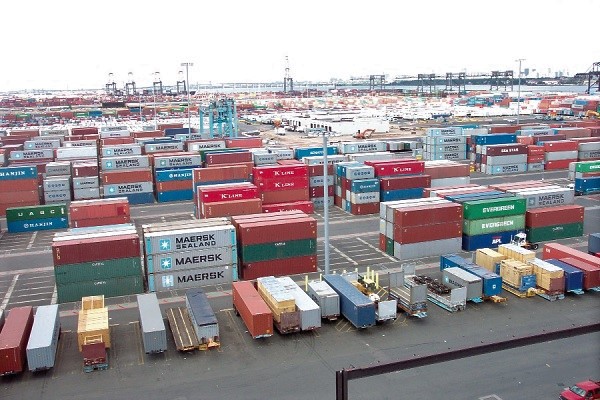Economist, Dr. Patrick Opoku Asuming says Ghana needs a long term economic plan for revenue mobilisation instead of the stopgap policy measures that government invests in.
According to him, these stopgap policy measures end up being inconsistent with the general outlook of the government’s economic plan for the country thus creating more problems.
He was referring to the reversal of the benchmark value policy reversal on some 43 products which has faced stiff opposition from service sector unions who claim the action could acutely increase the cost of goods and services in the country.
Dr. Asuming explained that the benchmark value policy is one of such stopgap policy measures which have proven to be inconsistent with the long term economic plan of the country.
Speaking on JoyNews’ PM Express he said; “The benchmark value policy has not been consistent with other policy measures of government. I think you can’t pursue policy of industrialization and say you’re also going to reduce the import duties of competing items. So from the point of view it has not been mutually consistent.
“And generally if we want to promote (local industry), if you look at some of the items that the removal is applying on like the poultry, like the rice and other… so if you have a planting for food and jobs agenda and then you also have a one district one factory then making it easier for imports to come into the country obviously doesn’t help the agenda so from that score yes, it has (not been consistent).”
He stated that the benchmark value policy which was a stopgap policy measure to make Ghana’s ports more competitive and generate revenue had not lived up to expectation.
“The reason why I said revenue was a big consideration is that he (the Vice President) said that Ghana’s ports are not competitive and by slashing the benchmark values they’re going to bring volumes and make more revenue. So I think the revenue consideration has always been there.
“But the broader point we have to understand is that we can’t sacrifice short term revenue for the long term plan of the country. I think we need to have a consistent long term plan, a strategy saying that even if at this point there are some goods that we need to import we have to have a long term strategy that says over the next two or three years we are going to invest more in developing this sector and at that point it becomes necessary to start removing the benchmark values so that at that point the country would have generated a local substitute,” he said.
According to him, by creating policy measures that fit perfectly into the government’s long term strategy, it eases the blow during the rollback of the policy.
“So when you do that, it will lessen the price impact of removing the benchmark value,” he said.
He added that “overall it is obvious that the benchmark value didn’t achieve what the government wanted it to achieve. I think Mr. Boahene has admitted as much that it didn’t achieve the revenue targets that they wanted and at the same time, it’s not clear that at the time the benchmark values were brought in domestic prices reduced that dramatically.”
Latest Stories
-
Ground-breaking health investment charter to tackle worker shortages in Africa
4 mins -
From Mortuary to Matrimony: Feature on how couple’s love journey brewed at the morgue airs on Joy Prime
19 mins -
Ghana’s LPG prices rank among the highest globally – LPG Marketers Association
26 mins -
Filth Exhibition: Residents near Korle Gonno bear the brunt of nationwide filth
40 mins -
We’ve not selected NPP members as returning officers – EC replies Mahama
57 mins -
We’ll not honour any invitation – ECG tells Ashanti Regional Minister
1 hour -
Dumsor vigil to hit Accra
1 hour -
Supreme Court rule for dual citizens to hold other key positions laudable – Kwaku Asare
2 hours -
‘No one is above the law’ – CAF president on match-fixing allegations against Samuel Eto’o
2 hours -
Manchester City thrash Brighton to go second in table
2 hours -
NDC’s running-mate speech proves readiness to lead – Asah-Asante
2 hours -
Further win for nibima as another KNUST study supports medicinal prowess
2 hours -
World Bank’s food price index eases; maize, wheat prices hit 3-year low
4 hours -
2020 polls all about pulling Ghana back from precipice of destruction, corruption – Naana Jane
4 hours -
Guru expresses interest in contesting SRC election at UG
4 hours

